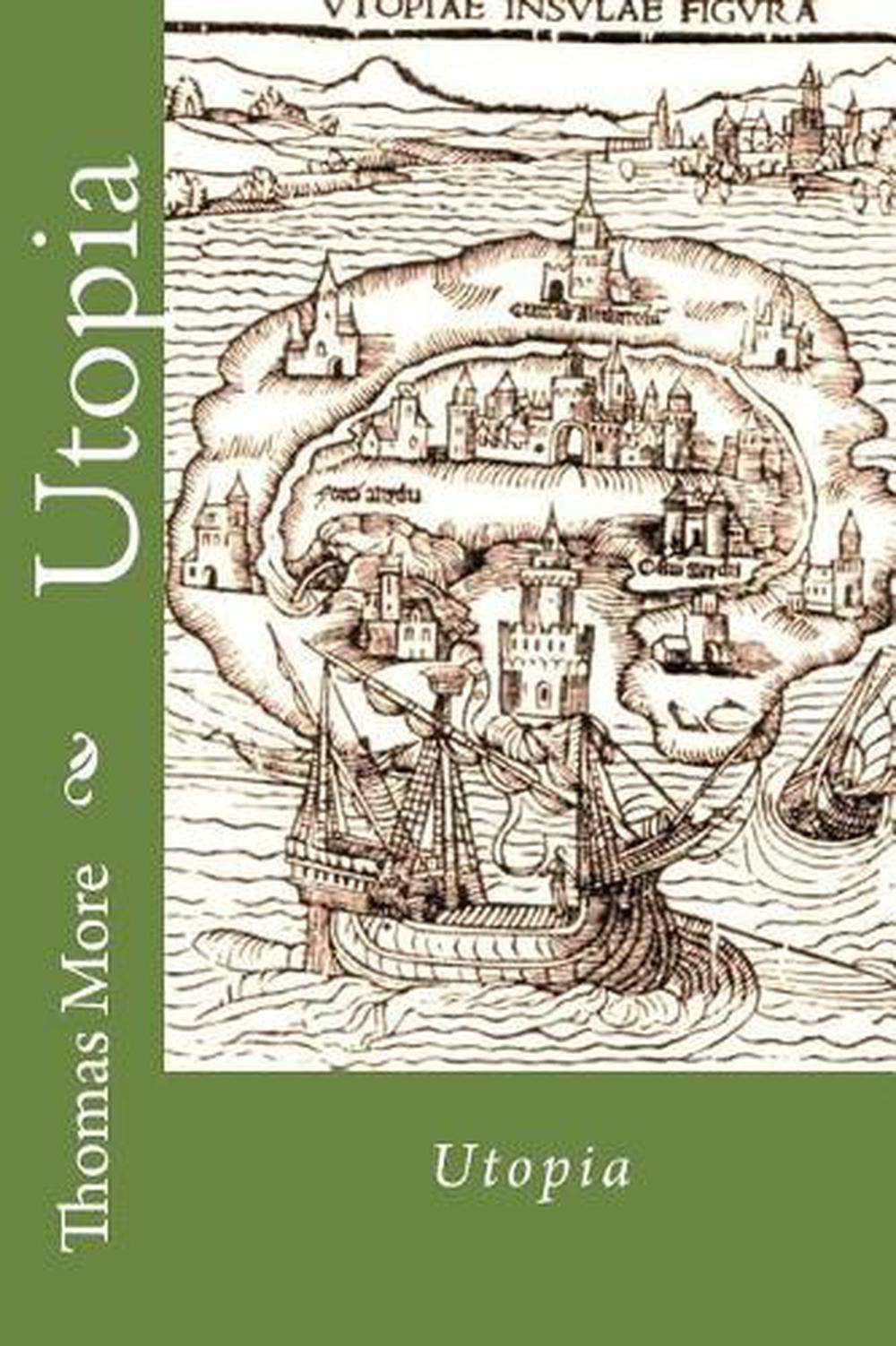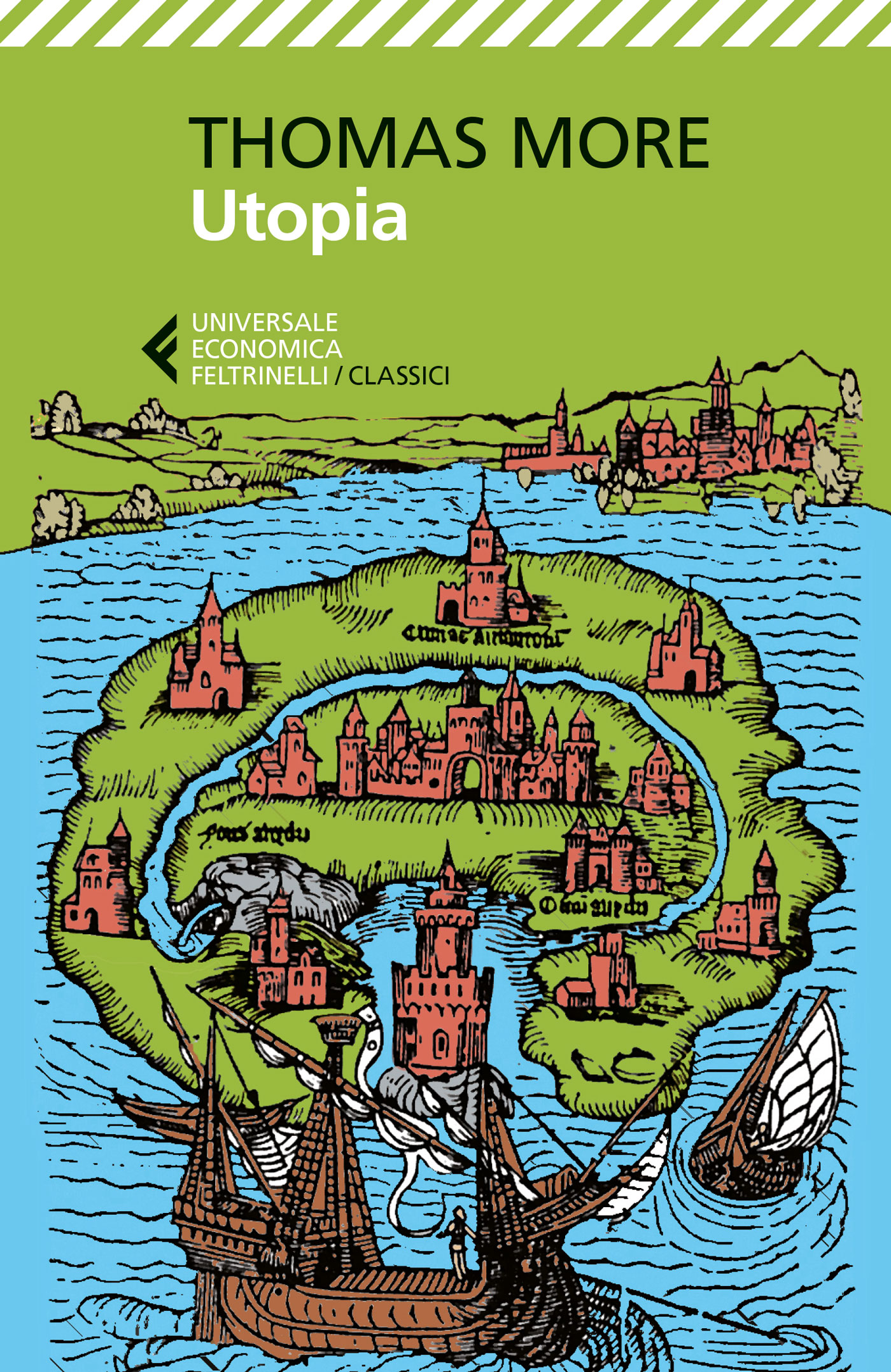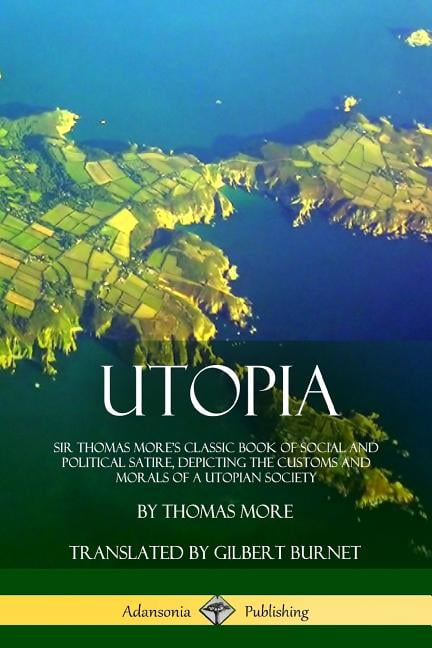

Nonetheless, he wishes for many features of Utopian society to be realized in Europe’s cities, though he doesn’t dare hope as much, for such a hope would be unrealistic. Giles introduces More to Raphael Hythloday, an explorer who has seen much of the world.

He has faith that wise counselors in the service of kings can improve societya point on which he and Hythloday disagree. After Hythloday concludes his discourse on Utopia, More thinks to himself that many of that commonwealth’s laws and policies are not founded on good reason, especially the abolition of private property and money. handed me the Utopia of Thomas More and brought to my attention a reading most pleasant and, at the same time, one which will be of use. Thomas More (14781535) Summary: Concerning the Best State of a Commonwealth and the New Island of Utopia More Meets Hythloday The narrator, Thomas More, arrives in Bruges, in present-day Belgium, and meets his friend Peter Giles. More is an intelligent, curious man, dutifully committed to his family and public service, and also is a practical believer in plain speech. He has faith that wise counselors in the service of kings can improve society-a point on which he and Hythloday disagree. More is an intelligent, curious man, dutifully committed to his family and public service, and also is a practical believer in plain speech. In the work, More visits Antwerp while on a diplomatic mission on behalf of King Henry VIII of England, and there he befriends Peter Giles and Raphael Hythloday More’s record of the discussion he has with these two men in his garden makes up the book Utopia. This article, however, argues for reading it as an economic allegory. Utopia (Norton Critical Editions) Thomas More. This edition carries an Introduction by Father Surtz explanatory notes accompany text. Germain, continue to publish with us.Thomas More is simultaneously a historical personage, the author of Utopia, and a character in it-but the author’s resemblance to the character doesn’t mean the two are the same. Thomas Mores Utopia is often discussed as a moral allegory. Selected essays of English scholar and statesman Sir Thomas More (canonized as St Thomas More) (1478 - 1535) from his Utopia (1516), describing an ideal city-state. Note: The characters of More, Giles, and Morton all correspond in biographical background to actual historical people, Sir Thomas More (author of Utopia), the Humanist thinker Peter Giles, and former Chancellor of England Cardinal John Morton.


Hexter, are previous contributors so, too, editors of individual and highly influential volumes, such as the work of John Guy in editing More’s exchanges with Christopher St. Trapp - developed their interpretations of More, humanism, or the history of the period in our journal the editors of the landmark Yale edition of Utopia, Edward Surtz and J.H. The pages of Moreana accompany and distinguish the fifteen volumes of The Yale Complete Works of Thomas More because Moreana constituted the premier forum for discussion and debate over the work of the Yale editors: The original executive editor of the 2 Complete Works, Richard Sylvester, and his successor, Clarence Miller, published their findings in our pages others in the Yale project - such as Louis L. Since its inception, Moreana has provided leading research on the life of More and humanist forms of thought through interdisciplinary studies. Moreana is an international and non‐confessional journal, which was founded in 1963 by Abbé Germain Marc'hadour under the auspices of the Amici Thomae Mori, or the Society of Friends of Thomas More, and is read in nearly 30 countries today.


 0 kommentar(er)
0 kommentar(er)
